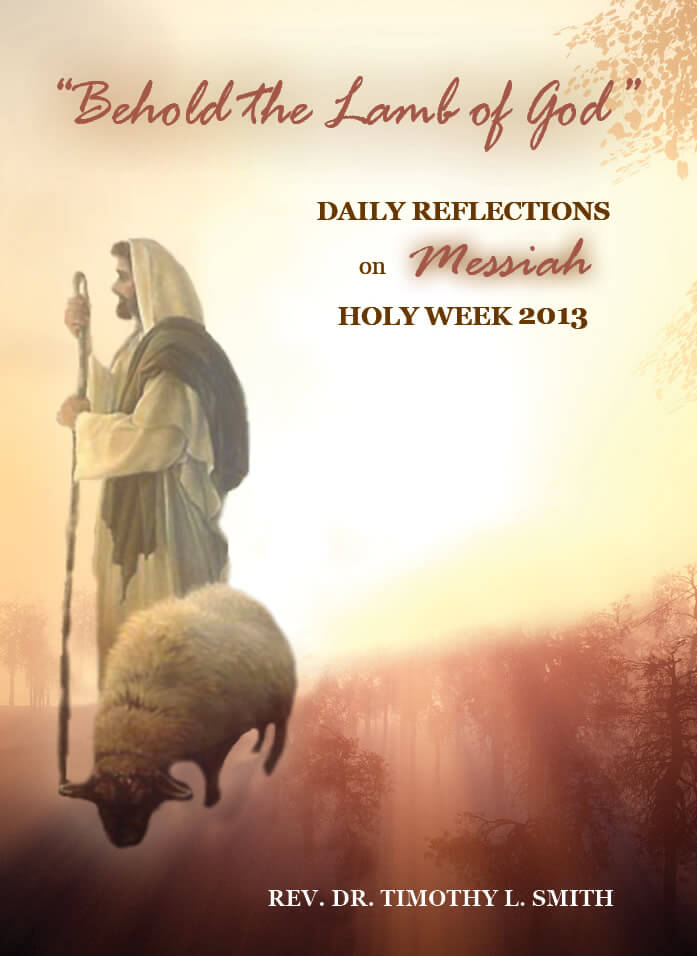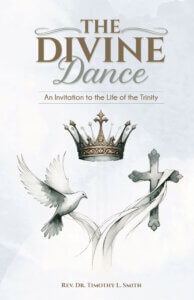As you read and reflect on today’s Holy Week devotional, please listen to this track from “Messiah”.

Drawing upon his extensive knowledge of Scripture and theology, as well as music, Jennens put together what he called a “Scripture collection”. He mailed the collection to Handel asking him to set it to music. Jennens intended that those Scriptures set to music would be an argument for the Christian faith. The oratorio would demonstrate that Jesus was the fulfillment of many Old Testament prophecies, and that He was God’s own Son and Messiah.
It was providential that Handel happened to receive the Scripture collection when he did. He was at the lowest ebb in his life as his last opera had closed after just three performances; Handel was despondent and deep in debt. He also suffered from the paralyzing effects of strokes, rheumatism, oncoming blindness, and despair. He feared he might spend the rest of his life in debtor’s prison.
But as Handel read the Scripture collection mailed to him by Jennens he was gripped by the Biblical texts. He began putting pen to paper at a furious pace in setting the Scripture collection to music. He worked like a man possessed, completing the 259 page music manuscript of Messiah in a mere 24 days. At the bottom of the last page he wrote the letters SDG, for Soli Deo Gloria (“to God Alone the Glory”).
Although Messiah has become synonymous with the Christmas season, Jennens and Handel intended it for Holy Week; Messiah was premiered during Lent on April 13, 1742. The Messiah Oratorio was structured with texts and music leading up to and flowing out of the days of Messiah’s passion and resurrection. It is significant for our understanding of Messiah to note that Jesus’ resurrection takes place just past the half way point of Messiah, leaving the rest to focus on the implications of resurrection, not for Jesus, but for us. By doing this Messiah reflects the preaching of the early church in placing more emphasis on Messiah’s death and resurrection than on His birth.
This Holy Week devotional is like the 2012 Advent devotional, Behold Your God!, being put together with the intention that the Messiah oratorio become the occasion for our daily prayer. The word “oratorio” comes from the Latin orare, which means “to pray”. And an “oratory” is that special place where people gather to pray. I hope you will make time each day during Holy Week to pray Messiah by following these steps:
- Read the Scripture text at the top of each page, followed by brief comments on that text.
- Listen to the text set to music at the top of each post, and read the comments on it.
- Reflect on what you have both read and heard by meditating on the questions at the bottom of each day’s reading. Make this an occasion for prayer, an occasion for talking with God and worshipping our Messiah.
Handel’s friend Sir John Hawkins recorded that Handel “throughout his life manifested a deep sense of religion. In conversation he would frequently declare the pleasure he felt in setting the Scriptures to music”. Handel’s pleasure in setting Scriptures to music can become pleasure for us as we listen to the music and Biblical text of Messiah.
AUTHOR’S NOTES:
- There are 33 movements in Parts II and III of Messiah. I have chosen 8 movements for us to read and hear for Holy Week (Palm Sunday through Easter). For more information on the background of Messiah, click on the 2012 Advent Devotional: “Behold Your God!”
- In deference to Charles Jennens and George Frederic Handel, all Scripture quotations are taken from the King James Bible.
- In preparing these Holy Week reflections I have been aided by two excellent sources: Roger Bullard, Messiah: The Gospel according to Handel’s Messiah, and Calvin Stapert, Handel’s Messiah: Comfort for God’s People.



